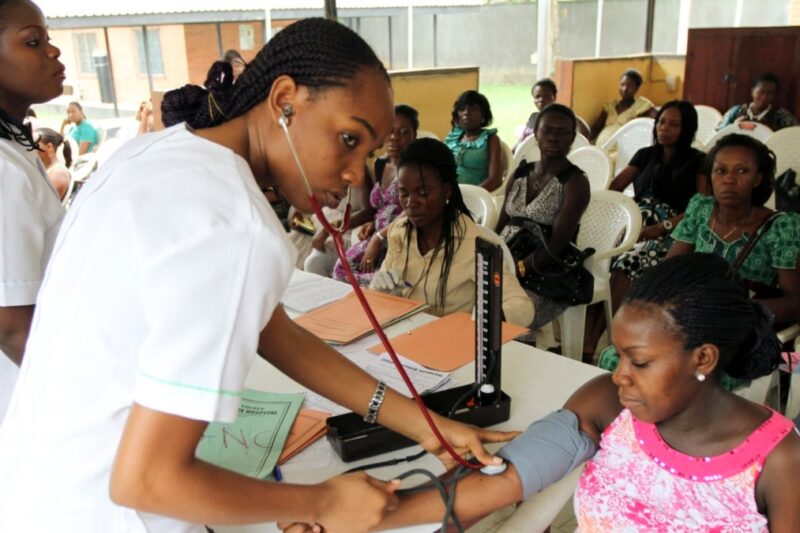Nigerians suffering from life-threatening illnesses are facing a bleak future because many can no longer afford the medicines they need to help keep them alive.
Most of these medicines – about 70% – are imported and, in many cases, the costs have almost doubled.
The country’s high inflation rate and the suspension of the fuel subsidy has resulted in a major spike in the prices of all commodities, including food and medicines.
Last month President Bola Tinubu declared a state of emergency on food. But nothing has been mentioned about the high cost of medicines and, if the government does not do something urgently to bring down the prices, many patients could die.
Patients – particularly the poor – suffering from diabetes, cancer, hypertension, asthma and other life-threatening illnesses rely on the medicines to keep their health issues under control. Without them, there is a very real chance that many will die.
Since most of the drugs are imported, they are subject to import taxes and this has added to the price. The high price of fuel means transportation costs have skyrocketed.
Dr Afoke Isiavwe, the chairman of the board of trustees of the Diabetes Control Media Advocacy Initiative, a non-governmental organisation, and Sam Eferaro, the NGO’s executive director, said that they were “outraged” about the high prices of drugs and urged the government to take urgent action to lower the cost of medical treatments to prevent a “health tragedy” in Nigeria.
In a statement, they said: “Many people living with diabetes currently have their lives hanging in the balance as their condition is now more difficult than ever to control.”
More Nigerians were getting diabetes complications, leading to lower extremity amputations, extended hospital stays and occasionally preventable deaths, they said.
“There is, therefore, a need to urgently bring down the cost of drugs for some of these conditions.
“We therefore call on President Bola Tinubu to intervene urgently to prevent an avoidable health disaster that could result from the neglect of people living with diabetes and other serious conditions such as cancer, hypertension, asthma, among others.”
They said that what was needed was an immediate reduction or total removal of import tariffs on essential drugs, adding that this would bring some relief to these patients.
Ali Alhaji Hamza, a resident of the Mafoni ward in the Maiduguri Metropolis of Borno State, told RNI that he had been battling with hypertension and had been sick for more than 16 years.
“I can get the drugs I need only when I have some money. If I don’t take the medicine, the one side of my body becomes paralysed. I also have pains in my veins. I need to take the medicine but it has become very expensive and I cannot always afford it.”
Maryam Kau, a diabetes patient, said she had to take drugs, injections and eat special food to keep her condition under control.
“The prices of the special food I need and the drugs have soared. I used to pay ₦7,000 a month for the medicine but now it costs ₦12,000, almost double the price. And that’s not taking into account the cost of the diabetic food items.”
Mohammed Musa, a pharmacist in the Gamboru ward of Maiduguri, said the removal of the fuel subsidy had pushed up the price of all drugs. It was not just the cost of the actual medicine, transportation prices had also increased substantially.
“If you look at the price of drugs just for diabetes, hypertension and asthma, the cost has almost doubled.
“We know the hardships that so many people are enduring and every time they come for their medicines they complain about the high prices and say they can no longer afford to buy them. We do what we can to help them. Sometimes we give them their medicine and tell them they can pay us later when they have money. Other times people pay for their medicines on a monthly basis.”
FALMATA MOHAMMED ALI









